The best choice for Emergency Charging
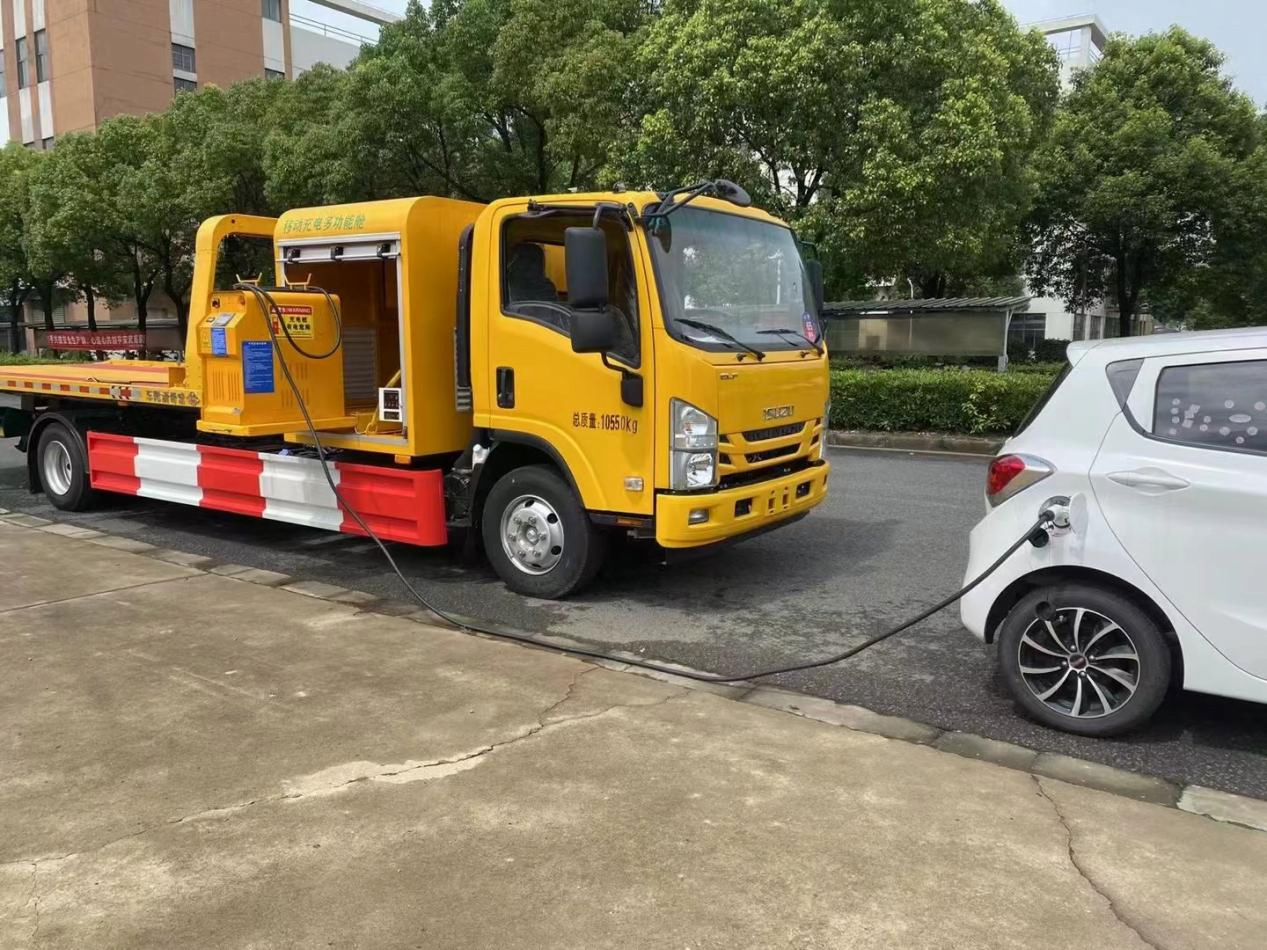
Portable charging stations with batteries play a crucial role in emergency rescue situations by providing a reliable power source for essential electronic devices and equipment.
From 3.8kW to 144kW, from one battery to five batteries.
It can install with CCS 1 plug, CCS 2 plug, CHAdeMo plug, GBT plug
All stations have CE certificate
It suitable for most of car emergency resuce
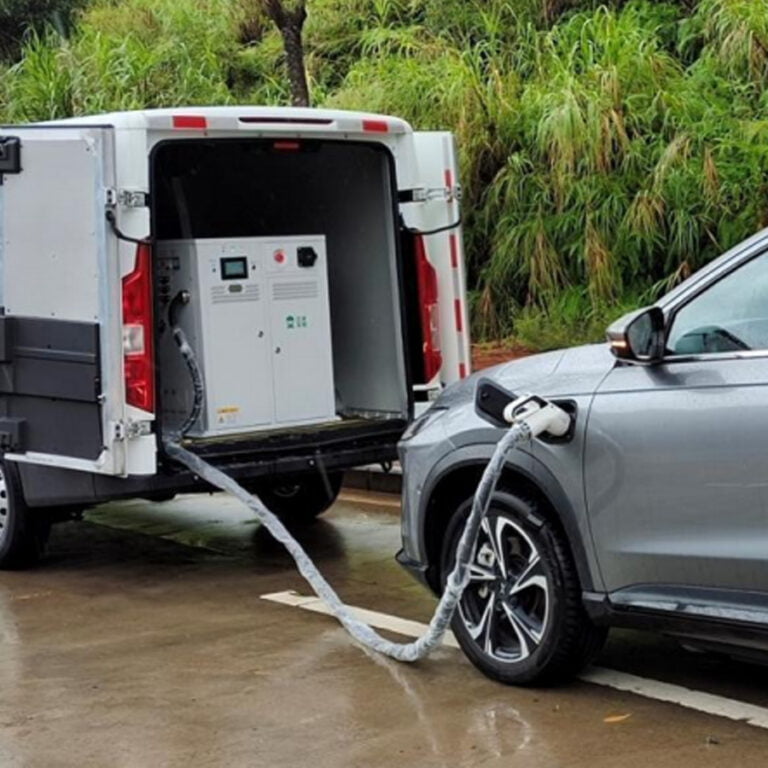
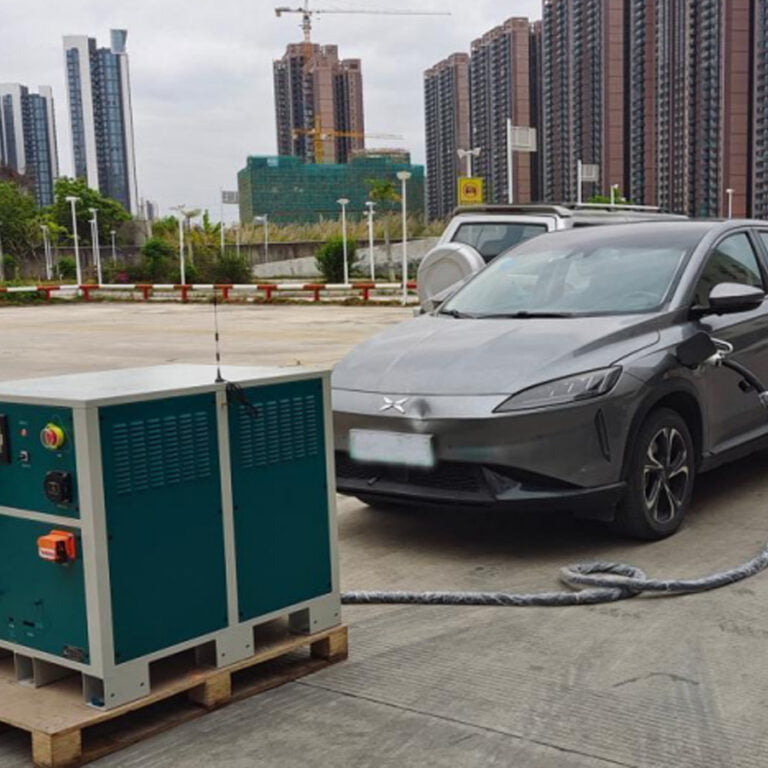
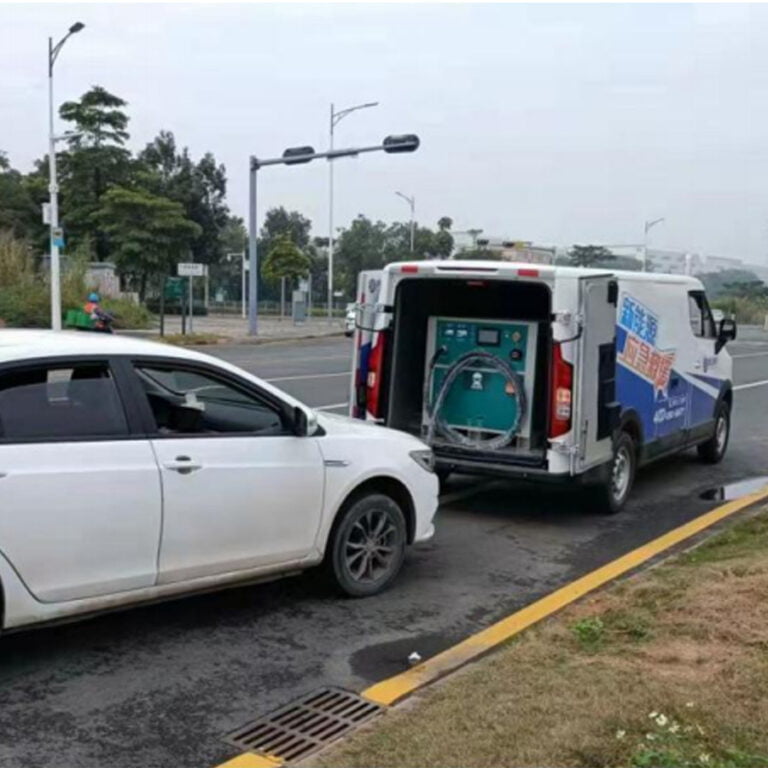
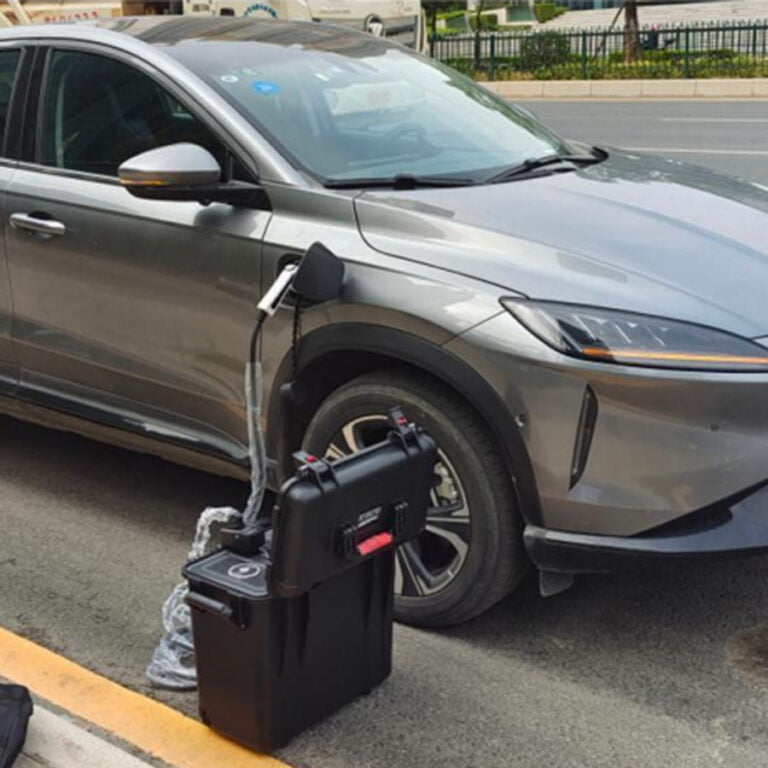
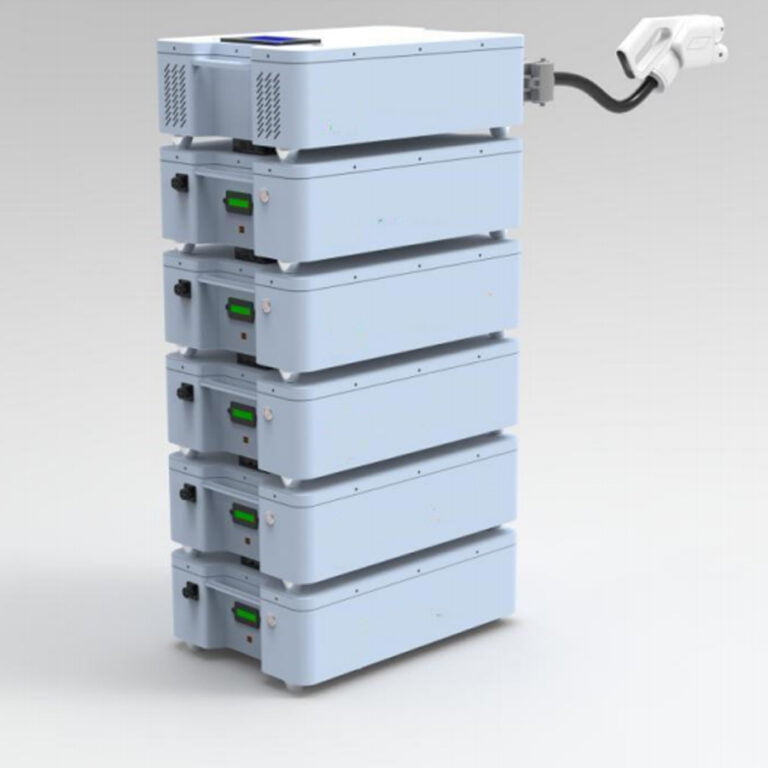


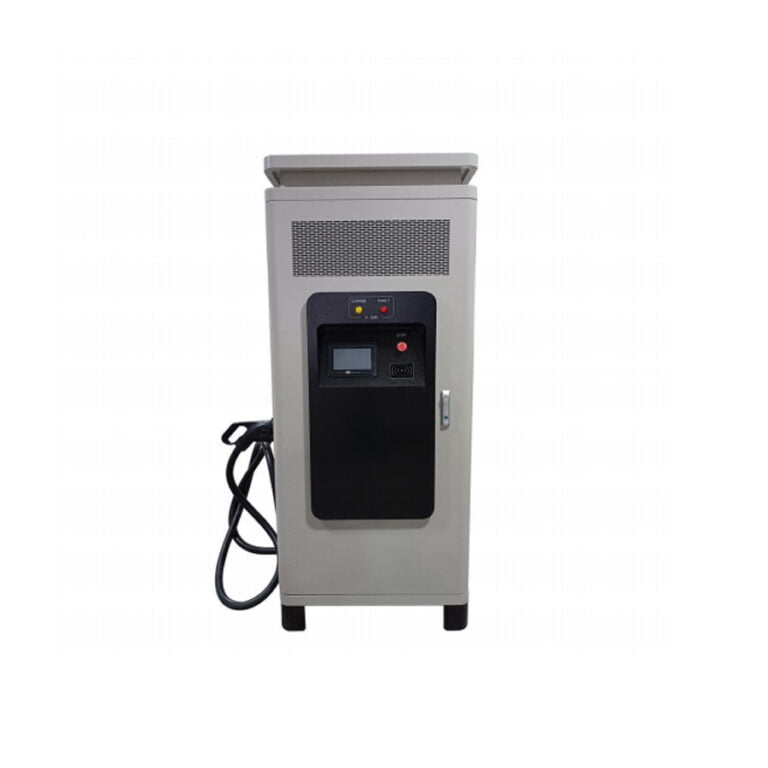
| Specification | 11kw moveable | 15kw moveable | 19.2 Stacked | 34kw moveable | 40kw moveable | 65kw moveable | 132kw moveable |
|---|---|---|---|---|---|---|---|
| Storage Capacity | 11kwh | 15kwh | 19.2kwh | 34kwh lifepo4 | 40kwh lifepo4 | 60kwh lifepo4 | 132kwh lifepo4 |
| Output power | 20kW constant power | 20kW constant power | 20kW constant power | 40kW Constant power | 40kW Constant power | 50kW Constant power | 120kW Constant power |
| Output Voltage | DC150V-750V | DC150V-750V | DC50V-750V | DC200V-750V | DC200V-750V | DC200V-750V | DC200V-750V |
| Output Current | 50A | 50A | 45A | 100A | 100A | 100A | 250A |
| Screen Display | 4.3 inch display | 4.3 inch display | 4.3 inch display | 7 inch display | 7 inch display | 7 inch display | 7 inch display |
| Charge mode | By hand | By hand | By hand | By hand/OCPP | By hand/OCPP | By hand/OCPP | By hand/OCPP |
| Working Temperture | -20℃-60℃ | -20℃-60℃ | -20℃-60℃ | -20℃-60℃ | -20℃-60℃ | -20℃-60℃ | -20℃-60℃ |
| IP Grade | IP54 | IP54 | IP54 | IP54 | IP54 | IP54 | IP54 |
| Charging Plugs | GB/T、CCS1、CCS2、CHAdeMO | GB/T、CCS1、CCS2、CHAdeMO | GB/T、CCS1、CCS2、CHAdeMO | GB/T、CCS1、CCS2、CHAdeMO | GB/T、CCS1、CCS2、CHAdeMO | GB/T、CCS1、CCS2、CHAdeMO | GB/T、CCS1、CCS2、CHAdeMO |
| Charge Plug | Only 1 Plug | Only 1 Plug | Only 1 Plug | 2 Plugs available | Only 1 Plug | 2 Plugs available | 2 Plugs available |
| Charge for power bank | 220V/380V AC | 220V/380V AC | 220V/380V AC | AC 220V/AC 380V /DC charge optional | AC 220V/AC 380V /DC charge optional | AC 220V/AC 380V /DC charge optional | AC 220V/AC 380V /DC charge optional |
| Size | 740*465*890mm | 700*550*1870mm | battery unit: 550*370*160mm | 950*780*910mm | 2300*868*782mm | 1000*950*985mm | 2300*868*782mm |
| Weight | 160kg | 220kg | Battery module weight:42kg | 440kg | 440kg | 680kg | 1300kg |
Some questions about this product
It based on the total power of battery station and vehicle power, normally is need about 20-30mins
Our from 11kW to 136kW, including 11kW, 15kW, 20kW, 34kW.etc
Now only can charge one car in one time.
The mainly DC charging has CCS 1, CCS 2, CHAdeMO, GBT, NACS, our portable station can install those plugs.
Yes sure, it has the protection to make safe charging.
Ours are mainly for ev cars emengency rescue.
It is heavy and need to be carried by car, normally they can’t be carried by hand.
Yes, we suppory one year warranty time for total charging station.

Our 60 kWh battery charger designed specifically for construction sites. In the often-unwired environments of construction sites, where high-voltage cables are readily available to provide high-power charging, our storage room chargers efficiently charge vehicles without disrupting regular electrical usage at the site. This means that vehicles can be quickly charged without interfering with the ongoing operations of the construction site.

Our portable battery charging solution tailored for vehicles used in mining operations. Operating in remote mountainous regions with limited access to conventional power sources, our 134 kWh battery chargers play a pivotal role in sustaining vehicle operations. By providing a reliable energy source, our chargers ensure uninterrupted productivity, enabling mining companies to optimize operations and minimize downtime in challenging environments.
Nowadays, portable battery chargers have become indispensable. With our reliance on electronic devices growing, these chargers provide a crucial lifeline, ensuring our devices stay powered wherever we go. From travel to emergencies, their convenience and versatility make them essential tools in our daily lives.
power bank for electric vehicles (EVs) is essentially the battery pack or energy storage system that provides the electric car with the necessary power to operate. Power bank come with a built-in battery. This battery serves as a power source for the charger itself, making it more versatile and independent of external power sources. The battery allows the charger to operate even in locations without access to electrical outlets.

The components of a power bank for an electric vehicle (EV) can vary depending on the specific design and model of the power bank. However, here are the common components typically found in power banks for EVs:
Built-in Battery: The portable charger is equipped with a built-in battery, usually using lithium-ion or lithium-polymer cells. This battery serves as a power source for both the charging operation and as a buffer for energy storage.
Battery Management System (BMS): The BMS is a critical component that monitors and manages the individual cells within the battery pack. It helps ensure safe charging and discharging, balances the cells to maintain uniform performance, and protects against overcharging, over-discharging, and overheating.
Charging Connector: The power bank is equipped with a charging connector that is compatible with the charging port of the electric vehicle. Different EV models may use different connectors such as CCS (Combined Charging System), CHAdeMO, or NACS, GB/T, and the power bank needs to support the appropriate standard.
Charging Control Unit: This unit controls the charging process, managing the power flow from the power bank to the EV’s battery. It ensures efficient and safe charging.
Cooling System:Many power banks incorporate a cooling system, such as fans or passive cooling elements, to dissipate heat generated during the charging process. Maintaining an optimal temperature is crucial for the longevity and safety of the battery.
Inverter: In some power banks, an inverter may be included to convert the DC power stored in the battery into AC power, depending on the requirements of the EV’s charging system.
Safety Features: Various safety features are integrated into power banks, including overcurrent protection, short-circuit protection, temperature monitoring, and mechanisms to prevent electrical issues.
Display or User Interface:Some power banks come with a display or user interface that provides information about the charging process, battery status, and other relevant details. This helps users monitor the charging activity.
Casing and Enclosure: The external casing and enclosure protect the internal components from environmental factors, physical damage, and ensure the overall durability of the power bank.
Handles or Mobility Features Depending on the design, some power banks may include handles or features that enhance mobility, making it easier for users to carry the power bank.
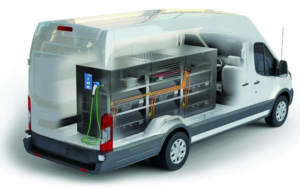
Charging the power bank:
The power bank can be charged in advance by connecting it to a power source. This power source could be a standard household outlet, a higher-voltage outlet, or a dedicated charging station. The charger’s built-in battery is replenished during this charging process.
Portability:Once the power bank is charged, it becomes a mobile unit that can be transported and used wherever needed. This is especially useful in situations where fixed charging infrastructure is unavailable or inconvenient.
Connecting to the Electric Vehicle:When you need to charge your EV, you connect the power bank to your vehicle. The charger is equipped with the appropriate charging cable and connector compatible with your EV’s charging port.
Charging Process: The portable charger utilizes its built-in battery to supply direct current (DC) power to your EV’s battery. The DC power is transferred from the power bank’s battery to the EV’s battery, facilitating the charging process.
Voltage Conversion (If Applicable):In some cases, the power bank may include an inverter to convert DC power stored in its battery to alternating current (AC) if the EV’s charging system requires AC input. However, this step may not be necessary for all portable chargers, as some EVs directly accept DC power.
Disconnection and Storage:Once the EV is charged or you decide to disconnect the power bank, you can unplug it from the vehicle. The power bank can be stored for future use, and the process can be repeated as needed.
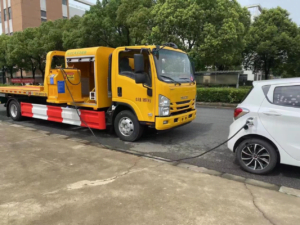
Emergency Charging: Power banks for EVs serve as a backup or emergency charging solution. If an EV driver finds themselves with a low battery and no access to a dedicated charging station, a power bank can provide a temporary solution to extend the driving range.
Top-Up Charging: Power banks are useful for topping up the battery when a quick charge is needed. This is particularly handy in situations where a full charging station may not be available, but a brief boost in charge is required.
Remote Areas or Limited Infrastructure: In areas with limited charging infrastructure, such as remote locations or places with few charging stations, a power bank allows EV owners to charge their vehicles independently.
Convenience for Travel: power bank are portable, making them convenient for EV owners who are on the move or traveling to areas where charging infrastructure might be scarce. It provides an additional layer of flexibility.
Versatility: The portability and versatility of power banks make them suitable for various scenarios, including urban environments, outdoor activities, and situations where a standard charging station may not be readily available.
Reducing Range Anxiety: Power banks can help alleviate range anxiety for EV drivers by providing a backup option for charging, reassuring them that they have a solution in case they are unable to reach a charging station.
The main difference between a DC portable EV charger and a DC portable EV charger with a built-in battery lies in the presence of an internal battery in the latter. power bank includes a self-contained power source, allowing for greater mobility and independence from external power sources. It is designed to serve as a backup or emergency charging solution, providing users with flexibility and convenience in a variety of scenarios.
Charging Connector Compatibility: Ensure that the portable charger has the appropriate connector to match your EV’s charging port.
Charging Power (kW):Ensure that the charger provides sufficient power to meet your EV’s charging needs. Higher power ratings generally mean faster charging.
Battery Capacity: Evaluate the capacity of the built-in battery in kilowatt-hours (kWh). A larger battery capacity allows for more energy storage and potentially longer driving range extension.
Portability:Consider the size, weight, and overall portability of the charger. A portable design allows for easy transportation, making it convenient for use on the go.
Power Source Options: Check the power source options for the portable charger. Determine whether it can be charged from standard household outlets, higher-power bankvoltage outlets, or dedicated charging stations.
Safety Features: Prioritize safety features, such as overcurrent protection, short-circuit protection, and temperature monitoring. These features ensure safe and reliable charging.
Weather Resistance: If you plan to use the power bank outdoors, ensure that it has adequate weather resistance to withstand exposure to rain and other environmental conditions.

Hey, I’m Celia Li, the author of the post, I have been Honors about 2 years, in the past two years, I have worked with more than 50 partners to solve their solution, if you also worried about the emegency solutions, welcome to contact us.

Hey, I’m Celia Li, the author of the post, I have been Honors about 2 years, in the past two years, I have worked with more than 50 partners to solve their solution, if you also worried about the emegency solutions, welcome to contact us.
Thanks for your interest, your inquiry will be responded within 24 hours.